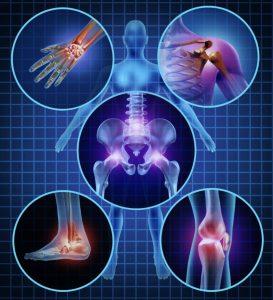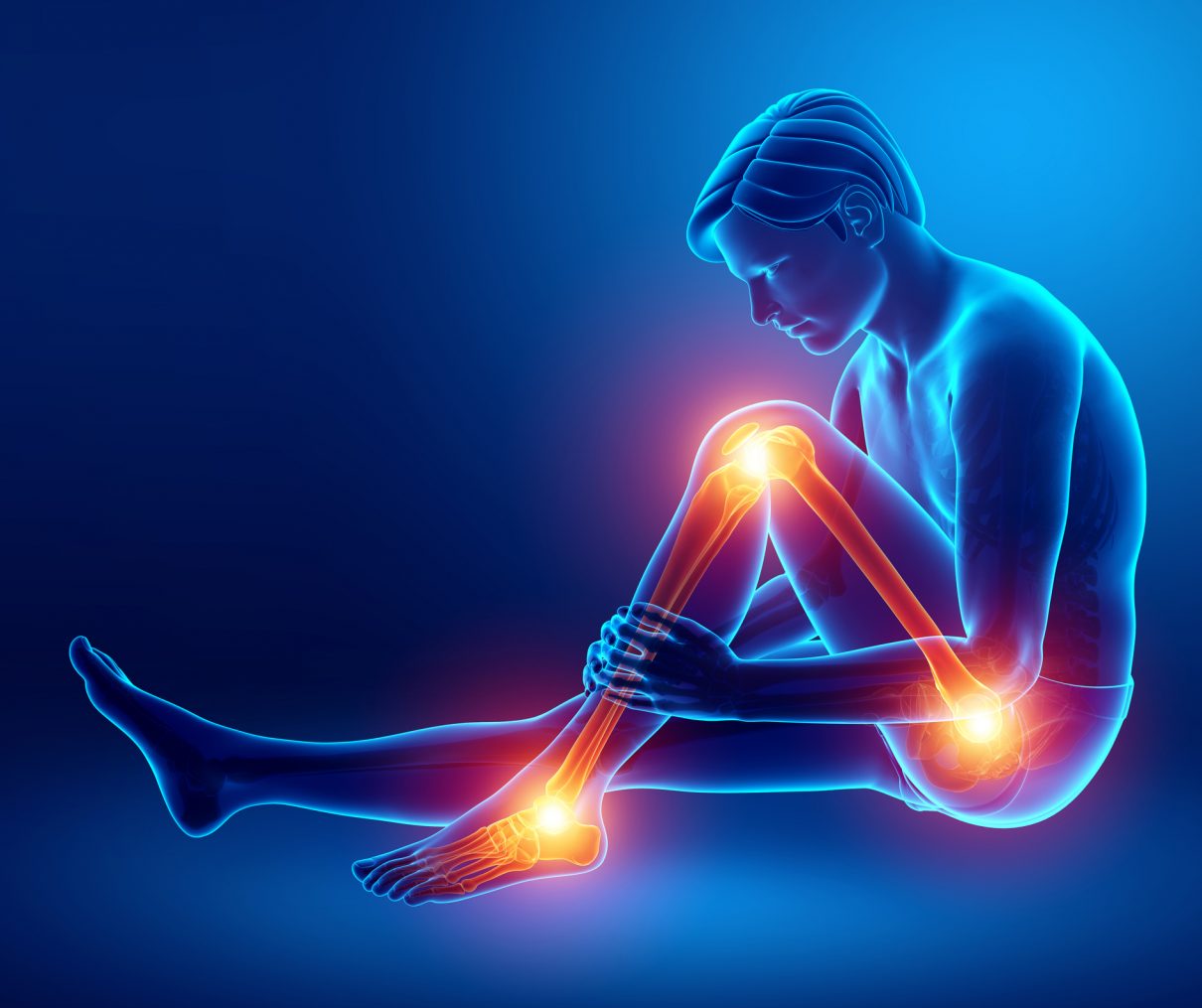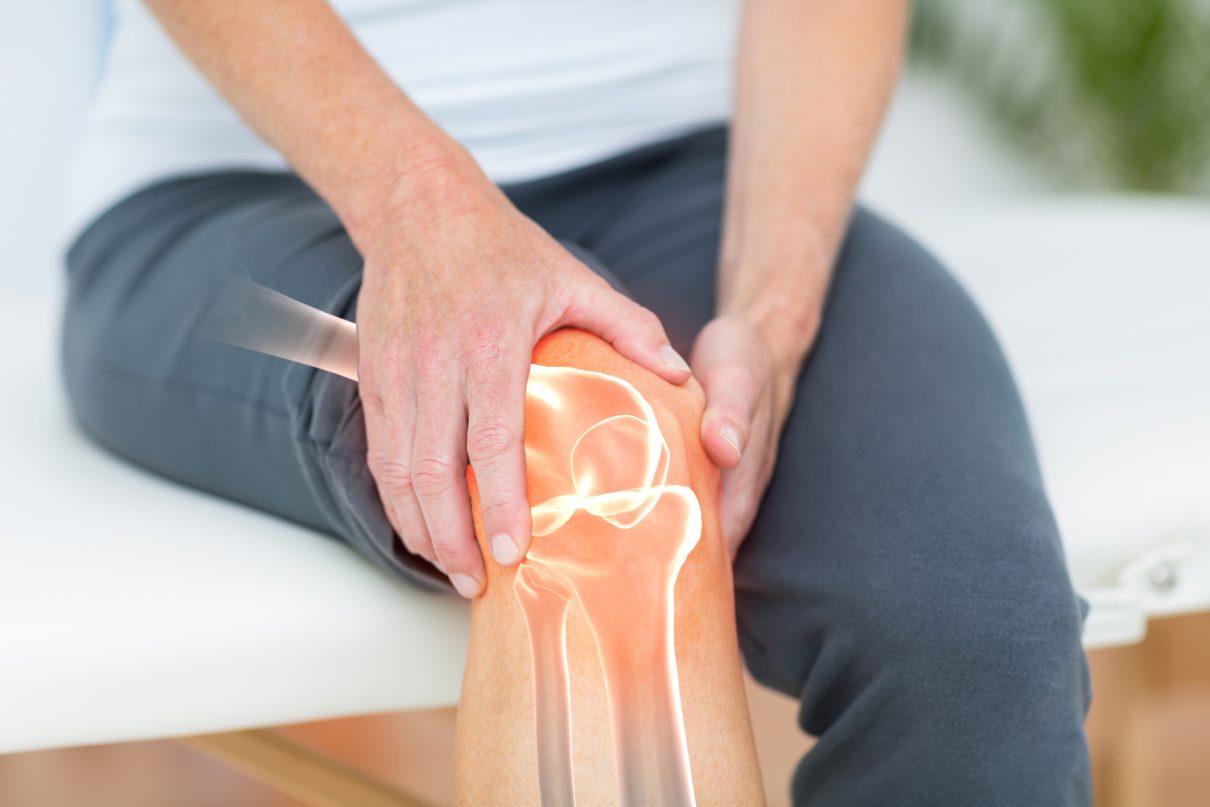CHRONIC PAIN
Chronic pain is persistent or recurrent pain lasting longer than 3 months since onset or “pain that extends beyond the expected period of healing”. It can last long after the injury or illness that first caused it is gone. Chronic pain can last from several months to many years. It has a negative effect on a person’s well-being and ability to perform everyday activities
Pathophysiology
Under persistent activation, the transmission of pain signals to the dorsal horn may produce a pain wind-up phenomenon. This triggers changes that lower the threshold for pain signals to be transmitted. The type of nerve fibers that are believed to generate the pain signals are the C-fibers, since they have a slow conductivity and give rise to a painful sensation that persists over a long time. In chronic pain, this process is difficult to reverse or stop once established. In some cases, chronic pain can be caused by genetic factors which interfere with neuronal differentiation, leading to a permanently lowered threshold for pain.
In individuals with chronic pain, EEGs showed altered brain activity, suggesting pain-induced neuroplastic changes. More specifically, the relative beta activity (compared to the rest of the brain) was increased, the relative alpha activity was decreased, and the theta activity was diminished.
Dysfunctional dopamine management in the brain could potentially act as a shared mechanism between chronic pain, insomnia and major depressive disorder. Astrocytes, microglia, and Satellite glial cells have also been found to be dysfunctional in chronic pain. Increased activity of microglia, alterations of microglial networks, and increased production of chemokines and cytokines by microglia might aggravate chronic pain. Astrocytes have been observed to lose their ability to regulate the excitability of neurons, increasing spontaneous neural actiovity in pain circuits.
Cause
There are many possible causes of chronic pain. According to the Institute for Clinical Systems Improvement, chronic pain can be grouped into four main types.
● Neuropathic (nerve-related) pain
● Muscle pain
● Inflammatory pain
● Mechanical/compressive pain
Diagnosis
There is no way to objectively measure pain. Only the person with chronic pain can provide a description of how much pain he or she is feeling. The doctor will ask where the pain is located, how long it has been going on, and whether it is sharp or dull, constant, or occurs off and on. Sometimes a patient will be asked to rate how bad the pain is by using a numerical scale and giving more details. The doctor will do a physical exam and may order additional diagnostic tests, including
● laboratory tests to analyze blood, urine, and/or fluid from the spinal cord and brain.
● Musculoskeletal or neurological exams to assess reflexes, sensation, balance, and coordination.
● Imaging tests
○ Magnetic resonance imaging (MRI) to obtain scans of the brain, spinal cord, and other structures.
○ X-rays to obtain images of the bones, joints, and other structures.
● Electrodiagnostic procedures
○ Electromyography to test muscle activity.
○ Nerve conduction studies to record how well nerves are working.
Treatment
The for chronic pain are as diverse as the causes. From over-the-counter and prescription drugs to mind/body techniques to acupuncture, there are a lot of approaches. But when it comes to treating chronic pain, no single technique is guaranteed to produce complete pain relief. Relief may be found by using a combination of treatment options as follows;
● Drug Therapy
● Trigger Point Injections
● Surgical Implants which is rare, there are two main types of implants to control pain:
○ Intrathecal Drug Delivery.
○ Spinal Cord Stimulation Implants.
● TENS (Transcutaneous Electro-Nerve Stimulator)
● Bioelectric Therapy
● Physical Therapy
- Published in Orthopedic Rehabilitation Center, Services
Chronic pain
What is Chronic Pain?
Chronic pain is a pain that lasts longer than the normal cause of healing, recurring and sometimes persistent all day long but may differ in severity. Even if the injury or illness has been resolved or healed, or managed with pain medications, chronic pain can still be felt from months to years. It affects a person’s quality of life and disrupts activities of daily living. For long term conditions, people with chronic pain develop low self-esteem, angry, depressed, anxious, and frustrated.
What are causes of Chronic Pain?
There are numerous causes of chronic pain but the main types are grouped as the following:
- Neuropathic (nerve-related) pain– caused by damaged or malfunctioning sensory receptors and neurons in the nervous system. One example is sciatica (pain in the back, hip, and upper thigh related to the sciatic nerve).
- Muscle pain– this pain comes from problems with the skeletal muscles. It can affect areas such as the lower back, hips, legs and feet, neck, shoulders, arms, and trunk of the body. It often occurs after an injury or following repetitive motions.
- Inflammatory pain – causes include arthritis, tissue injury, infection or post-surgical complications.
- Mechanical/compressive pain: causes include fractures, disc degeneration, or compression of tissue by tumors, cysts, or bony structures.
Role of Functional Medicine
Functional Medicine focuses on finding the underlying factors that play a role in the patient’s chronic pain. Individualized treatment/therapeutic plans are created after a comprehensive evaluation of the patient’s clinical imbalances, diet, lifestyle, psychological well-being, and results of Functional Lab tests. After identifying the underlying cause of one’s chronic pain, our specialists can advise an integration of programs that can help the patient achieve relief from symptoms. Nutritional status, proper supplementation, appropriate physiotherapy may be combined with shockwave therapy, G-Factor and other related management that directly addresses the underlying causes.
- Published in Orthopedic Rehabilitation Center, Services
ARTHRITIS
What is Arthritis?
Arthritis is a very common problem of inflammation of the joints. It affects both children and adults but is more common as people get older. There are many causes of arthritis such as injury, abnormal metabolism, genetic makeup, infections, and immune system dysfunction. There are about 100 different types with many related conditions. Osteoarthritis being the most common type. Arthritis occurs when the cartilage (cushioning connective tissue) in our joints become thin and wear away, bone rubs against bone which then causes the symptoms.
Signs and Symptoms
Symptoms include swelling, pain, stiffness and decreased range of motion. Symptoms may come and go and can be mild, moderate or severe. The symptoms could stay the same for years, but may progress or get worse over time. Severe arthritis can result in chronic pain, inability to do daily activities and make it difficult to move around. It may greatly affect one’s quality of life. Conventional treatment and management involves medications, physical therapies, patient education and support, surgeries, and many alternative treatments with an assortment of claims.
Role of Functional Medicine in Arthritis
A functional approach recognizes that the immune system is in charge of both inflammation and anti-inflammation processes. Functional medicine exposes the root cause of the confused immune system and when we treat this, the body can realign the natural immune response. The body has the ability to heal itself and it all starts with an initial examination, comprehensive neurologic and metabolic exam with necessary tests.
Functional medicine treatment plan promotes healing and improvement of cell functions through personalized nutrition plan, certain physiotherapy activities applicable to the patient’s specific condition and promising new treatments such as G-Factor and NAD.
Make an appointment
Please click here to make an appointment with our doctor.
- Published in Orthopedic Rehabilitation Center, Services

 English
English  ไทย
ไทย  繁體中文
繁體中文  العربية
العربية  Español
Español 



